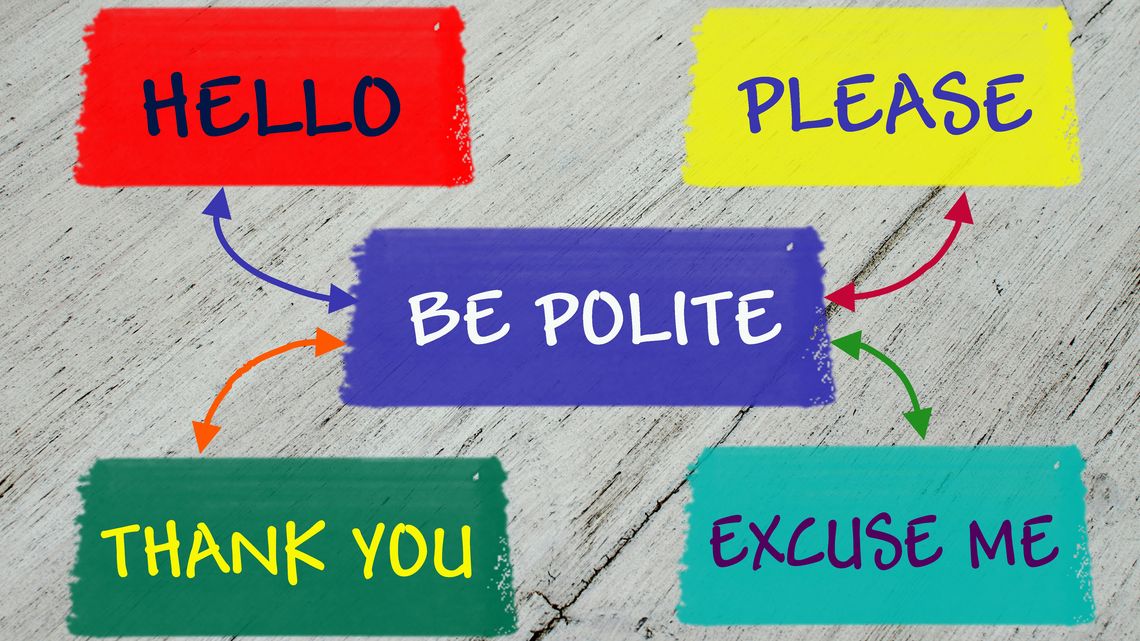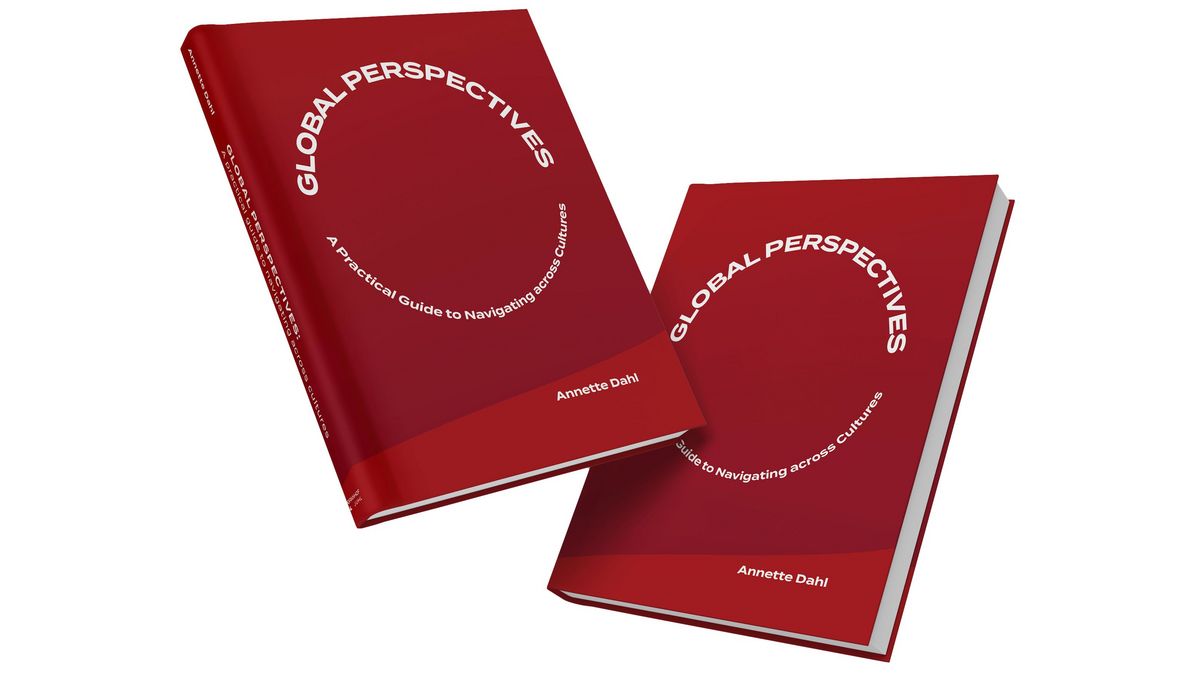
Are 'Good Manners' the Same in Denmark and the UK?
Are my good manners the same as your good manners?
In this blog post, Patti McCarthy and Annette Dahl will examine what are considered to be good manners and polished etiquette from a UK and a Danish perspective.
Patti is the founder of the cross-cultural coaching and training business Cultural Chemistry, now based in Oxford and offers expatriate coaching and inter-cultural management training. An expatriate herself for much of her life, she helps clients to enjoy and benefit from cultural differences. At C3 we work with Patti on cultural training focusing on the UK and Australia.
Annette is C3's CEO and chief trainer. Being Danish herself, Annette has worked and lived across the globe and has trained people of various nationalities in Danish culture.
1. What is typically understood by politeness and 'good manners' in the UK and Denmark, respectively?
Patti:
There are two key elements to what constitutes ‘good manners’ in the UK; don’t make a fuss and treat everyone with courtesy.
My experience at a networking event recently sums this up.
20 of us were each given 30 seconds to introduce ourselves and 2/3 people spoke for at least 60 seconds. One man reached 3 minutes, to much finger tapping and frowning, but nobody actually intervened – except me. I tapped on the desk and (very politely) reminded him of the 30 second limit and afterwards, six people thanked me for speaking out and said they wouldn’t have ‘dared to’!
The concern about ‘making a fuss’ stems primarily from worry that by complaining, you become a nuisance to someone else.
The British will say "sorry", even when it isn’t their fault and ‘making a fuss’ can include everything from complaining that your coffee is not hot enough, to being sure that you got the time wrong when someone else is late and to being reluctant to disagree in a meeting.
Treating everyone with courtesy is what a ‘gentleman’ does and in business it is usual to acknowledge everyone’s contributions, even if totally unworkable.
A novel solution will often be met with the response "hmm…interesting", which all British people know means ‘anything but interesting’. This inevitably leads to confusion, especially when the other person thinks it is helpful to speak directly.
"Interesting" is used in a wide variety of both social and business contexts but be careful, as it is also used as a genuine compliment.
Annette:
In Denmark, complaining (or in Danish: "brok") is part of everyday life. Danes love to complain about the weather, about politicians, about their tax burden, and about conditions in the workplace.
In a larger perspective, the complaining reflects the way most Danes are brought up to have an opinion and to say what they think.
You can almost call it a "requirement to express yourself": You should look at things critically, and if there is something you disagree with or are dissatisfied with, you should say it.
Even though dissatisfaction in daily small talk comes out as complaining ("brok"), the word "brok" in Danish has a negative sound. Because if you only complain to your colleague about conditions in the workplace, nothing changes.
Instead, you should go to your boss with "constructive criticism" about what you are dissatisfied with, and preferably with suggestions about how things can be improved. This is seen as both polite and respectful.
Another important element in the Danish version of politeness and "good manners" is Danes’ love for equality in all aspects of life.
Most Danes address each other by their first names and titles are not considered very important.
And after a romantic dinner, the loving couple will often split the bill between them – men and women are equal, and as a man you risk signalling superiority by paying the bill.
2. Are politeness and 'good manners' seen as important in professional life? And in what way?
Patti:
Everyone has their own interpretation of what ‘good manners’ looks like, but in the UK this would particularly involve treating people as equals and showing everyone the same basic courtesies. Failure to do this would very definitely go against you.
Although the UK is far more informal than it used to be, respect is shown for senior, older people and unknown people by addressing them more formally (using Doctor / Ms) until they invite you to use their first name.
Email etiquette varies considerably and if you are writing to someone completely unknown – particularly if you want a favour! – a little humility can go a long way.
Likewise with dress; in general it is better to be over-dressed than under-dressed, but being stylish and even eccentric is admired.
British managers are ‘part of the team’ and do not rule with an iron rod; they expect and welcome input from their team. However, the boss does have the final say, even if some people on the team are not happy with the decision.
Similarly, colleagues will of course discuss matters between themselves, but often are concerned not to cause offence and therefore not argue with the same robustness as, for example, two German colleagues might.
Annette:
Equality is also one of the most important values in the Danish workplace.
You are not allowed to think you are better than anyone else or to take yourself too seriously. If you brag about your results to your colleagues, or if you as a manager try to "flash" your status in expensive designer clothes, it is seen as bad style.
The "requirement to express yourself" also plays a role in Danish workplace culture. If you are part of a meeting, it is expected that you actively take part and share your opinion.
At C3 we have heard from international employees who experience a lack of politeness and "good manners" from their Danish colleagues. And we have spoken with their Danish colleagues who in no way wanted to be impolite or insult anyone. Danish politeness is simply expressed differently than in many other cultures.
Let’s look again at the idea of a meeting at work.
At the meeting, you are discussing a technical problem that has arisen and trying to find a solution. As a specialist in the area, you know that the solution that the boss has suggested will not work. But you don’t say anything, because you want to be respectful and don’t want the boss to lose face.
But for the typical Danish boss this would seem more like a lack of respect – you have some important knowledge that you are not sharing with others. Now the company will end up spending a lot of energy on a solution that won’t work anyway. In the boss’s eyes, this is ineffective and a waste of time.
And wasting a Dane’s time is one of the worst things you can do!
3. How do societal and organisational attitudes towards what constitutes politeness and 'good manners' vary?
Patti:
The British are at pains to deny the existence of any class system and although this is far less prevalent than it was, it is still evident in social settings, in education and of course in business. 27 of the last 30 UK Prime Ministers went to the same private school and in some sectors, what’s known as the ‘old boy network’ still thrives.
A more traditional and hierarchical model is still evident in many of the older, larger institutions such as banks, medicine, insurance and the older universities. There is less diversity of any kind in these companies and – as in government – fairly entrenched resistance to doing things differently.
Smaller companies in industries such as tech, media, design, information systems, energy - are much flatter. They fish for talent in a much wider pool and will be much more relaxed with a more informal approach to email and meeting etiquette.
Societally things are changing too; the guest list at royal weddings now includes pop stars and footballers, neither of whom would have been invited 40 years ago.
Annette:
There are still companies in Denmark where men wear neckties and say "Mr" And "Ms" to the boss. And there are industries – for example, the military – where there is a clear hierarchy and fixed rules for how people speak to each other.
But these are exceptions. Most Danish companies have a flat structure, a relaxed dress code, and an informal tone.
When it comes to social classes, most of Danish society is designed to work against class divisions. Schools teach children that everyone is equal and the tax system creates a high level of income redistribution.
Of course, there are still different societal groups in Denmark. If you zoom in, you can find a number of differences when it comes to what is seen as polite behaviour depending on what part of the country you come from, generations, social classes, ethnic groups, industry cultures, etc.
But when we are painting with a broad brush, the Danish culture is much more homogenous than many other countries around the world.
4. How are Britons and Danes perceived by people of other nationalities when it comes to politeness and 'good manners'?
Patti:
I have often heard the British described, in negotiations particularly, as operating with ‘an iron hand in a velvet glove’. This means people find them terribly polite, as they never shout or lose their temper, but underneath the veneer of charm is someone very stubborn.
Doing things ‘by the book’ is very important to the Brits. Despite becoming increasingly multi-cultural, the British still have a very strong sense of ‘fair play’ and while there is corruption in both business and politics, it is at a very low level.
Another challenge for people working with the British is their use of irony and humour to either play down their own achievements (‘don’t make a fuss’!), to defuse tension or to subtly criticize someone else.
Often people find this opaqueness hard to understand and wish people would just be more up front.
Perhaps managers wish they could be more directive; I sense some frustration among many British managers that the workplace has become too consensus driven.
Overall the British in general are very good at giving you an order disguised as a suggestion ("perhaps you could = you need to”, “have we considered = have you thought about…") and also giving a ‘no’ described as a maybe ("interesting" and "hmmm…not sure how well that would go down").
Anyone who can master these subtleties will be well on their way to succeeding with the British!
Note that the UK consists of 4 different countries and that while many of these behaviours are shared amongst them, in general the English tend to be more indirect than their compatriots in the rest of the UK.
Annette:
Of course, it depends on the cultural baggage you bring with you.
As I mentioned, the Danish "requirement to express yourself" and very direct way of saying things can seem impolite if you are used to a more indirect way of communicating. If you mean "no" in Denmark you generally say "no" directly and bluntly.
The Danish focus on equality can also have consequences that can be seen as bad manners.
Many people experience the Danish level of service as very low. And in C3 we have heard international employees say that after they get a door slammed in their face for the 50th time they start to realize that it’s not because their colleagues are angry at them – Danes just don’t hold doors open for others!
Finally, many non-Danes see it as a challenge to get close to Danes, who can seem a bit cold and unfriendly.
This is partly because Danes’ "social focus" is aimed at established groups of family and friends they already have and partly because Danes don’t want to impose themselves on other peoples’ private lives.
That’s why you won’t often be invited to dinner at a Danish colleague’s house. And you will hardly ever experience that a Dane you don’t know strikes up a chat with you in the bus or in the supermarket.
Please share your thoughts!
We're fully aware that we’re speaking in very general terms in this blog post and that there will always be many exceptions.
Are you British or Danish – or are you working with colleagues from the UK or Denmark? Then we would love to hear if you agree with our description of politeness and 'good manners' in the UK and Denmark.
And whatever cultural background you have, what does politeness and 'good manners' mean to you?Please share your thoughts here on LinkedIn. We look forward to hearing your input!
Want to know more?
Want to learn more about how Patti and Annette can help you work effectively across cultures and benefit from cultural differences?
Contact us for a chat about how we match your need for training or coaching:
Want blog posts like this delivered straight to your inbox? Then sign up for C3 Consulting's newsletter using the form below.

